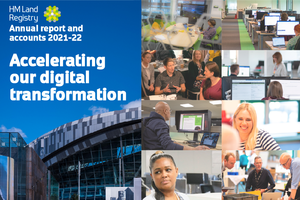Professor Clare Anderson
Clare Anderson is Professor of History and Director of the Institute for Advanced Studies at the University of Leicester. Her research focuses on the history of empires, including the history of punishment and forced labour mobility. She has special interests in the Indian Ocean and Caribbean regions, and is the author of numerous articles and six books, including Subaltern Lives and Convicts: A Global History. Professor Anderson has served on the British Academy’s South Asia panel and Economic and Social Research Council (ESRC) Grants Assessment Panel C, including as Vice-Chair. She has been awarded research grants totalling over £3m, including from the European Research Council, ESRC, AHRC, and British Academy, and has held doctoral partnership awards to work with PhD students in collaboration with the National Maritime Museum, Howard League for Penal Reform, and Salvation Army International Heritage Centre.
Lance Batchelor
Lance Batchelor is the Chairman of several UK based technology and services businesses. Prior to this he was CEO of a number of well-known companies including: Tesco Mobile, Domino’s Pizza plc and Saga Cruises. Earlier in his career he served in senior marketing roles for P&G in Cincinnati, and was then head of marketing for Amazon.com in Seattle. He holds a Harvard MBA.
Lance is the lead external director on the Royal Navy’s board. He served as a submariner in the Cold War and now holds the honorary rank of Captain RN.
Lance previously spent eight years as a trustee of the National Gallery, where he was also the Chairman of the National Gallery Company. He is a keen student of history, having recently completed an undergraduate certificate history course at Cambridge University. He is a Younger Brother of Trinity House, an RYA Ocean Yachtmaster, and a keen sailor.
Sir Stephen Deuchar
Stephen Deuchar’s career in UK arts and museums began at the National Maritime Museum in 1985 when he was appointed Curator of Paintings after completing a PhD in the History of Art at the University of London. Later roles in his 13 subsequent years at Greenwich included his organisation of the major Armada (1988) and Titanic (1994) exhibitions and directorship of the Neptune Court Project, prior to his becoming founding Director of the Tate Gallery of British Art (later Tate Britain) from 1998 to 2010, shaping its new role on the national and international stage. From 2010-20, he was Director of the Art Fund, the national charity for art, doubling its membership through the introduction of the National Art Pass and leading a significant expansion of its grants programme, especially in support of curatorial innovation across the UK museums sector. In parallel, the Art Fund ran a number of successful public appeals to help secure important works of art for the nation including the Staffordshire Hoard of Anglo Saxon treasure for the West Midlands, the Armada Portrait of Elizabeth I for Greenwich, and Derek Jarman’s Prospect Cottage for Creative Folkestone. He was appointed CBE in 2010 for services to the arts, and was knighted in 2021. He was made an Honorary Commodore of the NMM in 2016.
Murdoch MacLennan
Murdoch MacLennan has held a series of senior leadership roles within the British and European newspaper sector, representing the industry on several international media bodies, including as President of IFRA, the global technical association for newspapers, Vice-President of the World Association of Newspapers and twice Chair of the Newspaper Publishers’ Association.
Murdoch chairs PA Media Group, Mediahuis Ireland (part of Belgium’s Mediahuis NV Group) and the Scottish Professional Football League. He also sits on the Board of the Competition Markets Authority and chairs their UK’s Office for the Internal Market Panel.
He was CEO of the Telegraph Media Group from 2004-2017 and thereafter served as Deputy Chairman and subsequently as member of the board until 2019. An honorary professor at The University of Glasgow’s Adam Smith Business School, he is Vice-President and Appeals Chairman of the Newspaper Press Fund, President of the NewstrAid Benevolent Fund and sits on the board of the SPFL Charitable Trust.
William Nye
William Nye is the Secretary General of the Archbishops’ Council and the General Synod of the Church of England. From 2011 to 2015 he was Principal Private Secretary to TRH The Prince of Wales and The Duchess of Cornwall. Previously, he was a civil servant in various roles in HM Treasury, the Home Office and the Cabinet Office, specialising in national security.
Professor Andrew Thompson
Andrew Thompson is Chair of Global and Imperial History at the University of Oxford and a Professorial Fellow of Nuffield College. He is Co-Director of the Oxford Global History Centre. He was previously the Executive Chair of the Arts and Humanities Research Council where he worked closely with many of the UK’s leading museums, galleries, libraries and archives, securing significant new funding to promote the use of digital technology to create a unified national collection. He was awarded a CBE in 2021 for services to research.
Trustees of the Royal Museums Greenwich are not remunerated. This appointment has been made in accordance with the Cabinet Office’s Governance Code on Public Appointments. The appointments process is regulated by the Commissioner for Public Appointments. Under the Code, any significant political activity undertaken by an appointee in the last five years must be declared. This is defined as including holding office, public speaking, making a recordable donation, or candidature for election. Professor Clare Anderson, Lance Batchelor, Sir Stephen Deuchar, Murdoch MacLennan, William Nye and Professor Andrew Thompson have declared no activity.


